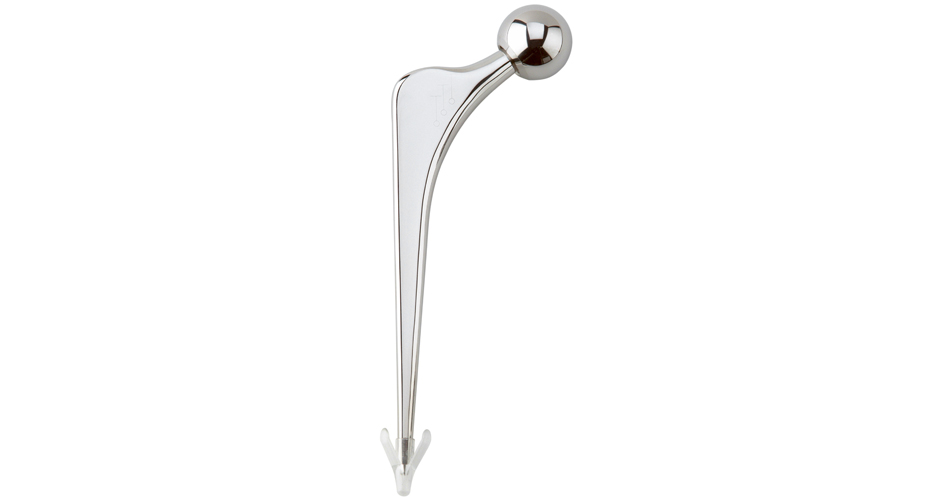£900,000 NIHR funding announced for robotic hip replacement study

Exeter hip stem
Over £900,000 from the National Institute for Health and Care Research (NIHR) will fund ground-breaking research that will trial the use of pioneering surgical methods to improve outcomes for hip replacement patients.
The research, funded by an NIHR and Medical Research Council (MRC) partnership, will be a collaboration between Royal Devon University Healthcare NHS Foundation Trust and the University of Exeter.
Total hip replacement is a very successful operation for most people. However, more than 10 per cent of patients continue to experience pain one year after their operation. This research seeks to improve patient outcomes by evaluating different surgical methods to fit hip replacements.
Most commonly, hip replacement surgery involves cutting and repairing three tendons at the back of the hip joint. This approach gives the surgeon a clear view of the hip joint and aids correct positioning of the new hip. A new technique (SPAIRE), which only requires the division of one tendon, has been developed by Prof. Timperley and the Hip Team in Exeter. The study will use robotic-guided surgery to understand whether cutting fewer tendons has a positive impact on patient recovery. This randomised controlled trial, Hip Surgical Techniques to Enhance Rehabilitation (HIPSTER), led by the Exeter hip unit in collaboration with the University of Exeter and co-ordinated by the Exeter Clinical Trials Unit, will recruit patients awaiting hip surgery from the Royal Devon & Exeter hospital.
Dr Timothy Holsgrove, Senior Lecturer in Engineering at the University of Exeter and Co-chief investigator of the study said: “The University of Exeter has a long legacy of research and development in hip replacements in partnership with the Princess Elizabeth Orthopaedic Centre, as evidenced by the pioneering development of the Exeter Hip, which has transformed patient outcomes for millions of patients worldwide. This important research continues the collaboration between the University of Exeter and the Royal Devon University Healthcare NHS Foundation Trust, and our combined commitment to improve quality of life for patients.”
The study will use the Exeter hip, designed in 1969 by NHS surgeon Professor Robin Ling and Dr Clive Lee, an Engineer at the University of Exeter. The Exeter Hip retains its status as one of the world’s most successful hip implants, and as the results of using it are so good, it continues to grow in popularity on all continents.
So far, robots are used in many different fields of life. Research suggests the introduction of robots to surgery will enable increased precision during operations. This pioneering new way of operating will give surgeons the ability to navigate the surgical field with pinpoint precision, allowing for an overall less invasive procedure and a reduction in the risk of error. As a result, the muscles and tendons surrounding the joint will endure much less trauma during surgery than traditional methods. The hope is that this will reduce recovery time significantly and increase the likelihood of full mobility returning to the joint with rehabilitation therapy.
Al-Amin Kassam, Consultant Orthopaedic surgeon in the Exeter Hip Unit and Chief Investigator of the study said: “Hip replacements are so important for mobility. This study will help us assess if cutting fewer tendons can lead to an improvement in outcomes. With an ageing population and an increasing demand for hip replacement surgery, any steps to improve patient outcome could make a huge difference.”



